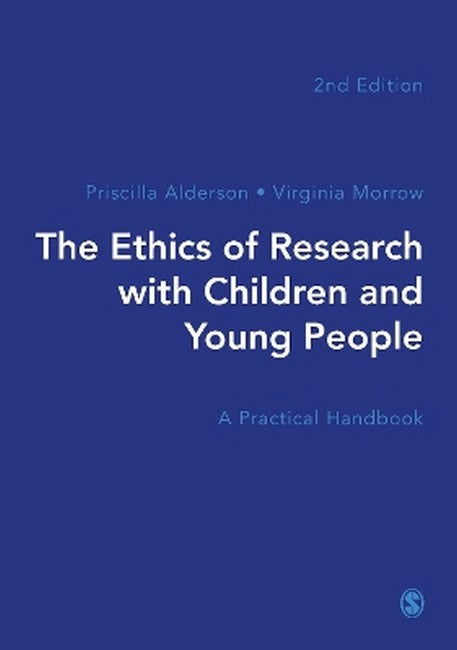Priscilla Alderson is Emerita Professor of Childhood Studies at University College London Social Research Institute. She has been involved with medical research ethics committees for nearly 40 years, and more recently with committees that review social research. She has advised on the writing of research ethics guidelines for a range of medical, nursing, social and psychological authorities. She has researched many aspects of children's lives and rights, from premature babies to young people aged up to 18 (see ResearchGate). Recent books include Childhoods, Real or Imagined: An Introduction to Critical Realism and Childhood Studies (Routledge 2013) and The Politics of Childhoods, Real or Imagined (Routledge 2016). Virginia Morrow is Visiting Professor, UCL Social Research Institute, and Research Associate, Young Lives, Department of International Development, University of Oxford. Her main research interests are sociology and history of childhood, child labour and children's work, children's rights, methods and ethics of social research with children; children's understandings of family and other social environments. She has been a member of numerous advisory groups and research ethics committees. She is the author of numerous papers and reports and she was a co-editor of Childhood: A Journal of Global Child Research, 2006-2016, also published by Sage.
Request Academic Copy
Please copy the ISBN for submitting review copy form
Description
Introduction: Why ethics matters Part I: The planning stages Chapter 1: Planning the research: Purpose and methods Chapter 2: Assessing harms and benefits Chapter 3: Respect for rights: Privacy and confidentiality Chapter 4: Designing research: Selection and participation Chapter 5: Money matters: Contracts, funding research, and paying participants Chapter 6: Reviewing aims and methods: Ethics guidance and committees Part II: The data collecting stage Chapter 7: Information Chapter 8: Consent Part III: The writing, reporting and follow up stages Chapter 9: Disseminating and implementing the findings Chapter 10: The impact on children and young people
This clear and engaging book challenges and guides researchers and ethics panels alike to consider the child as central in all stages of a research cycle. Bravo! -- Sue Smith Alderson and Morrow have, once again, produced the definitive guide to the ethics of working and researching with children. Authoritative, thoughtful, engaging and practical, it is filled with real-life examples from across the world which guide both new and experienced researchers towards the best possible practice in research with children and young people. -- Heather Montgomery The new edition of this book addresses many questions that have arisen in research with children in recent years. It makes clear that ethical maxims are not to be understood as a limitation, but rather as a help for researchers to be aware of their own uncertainties and to be encouraged to question and reflect. The authors understand social research as an open process in which children always are actors, as fellow researchers or researchers in their own cause. -- Manfred Liebel

